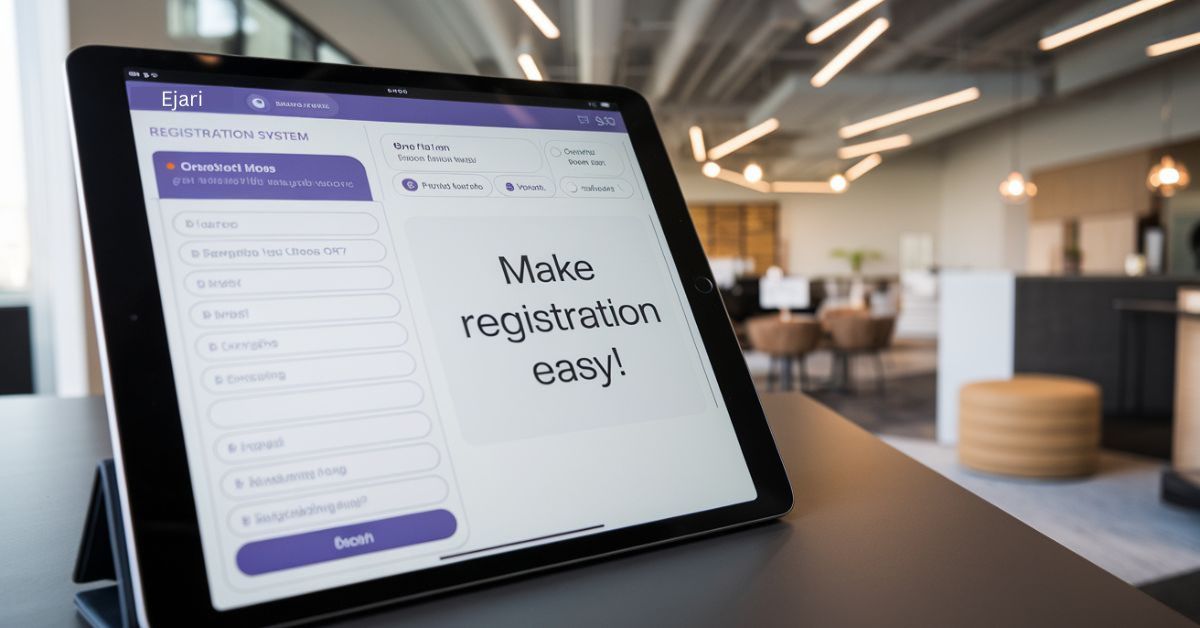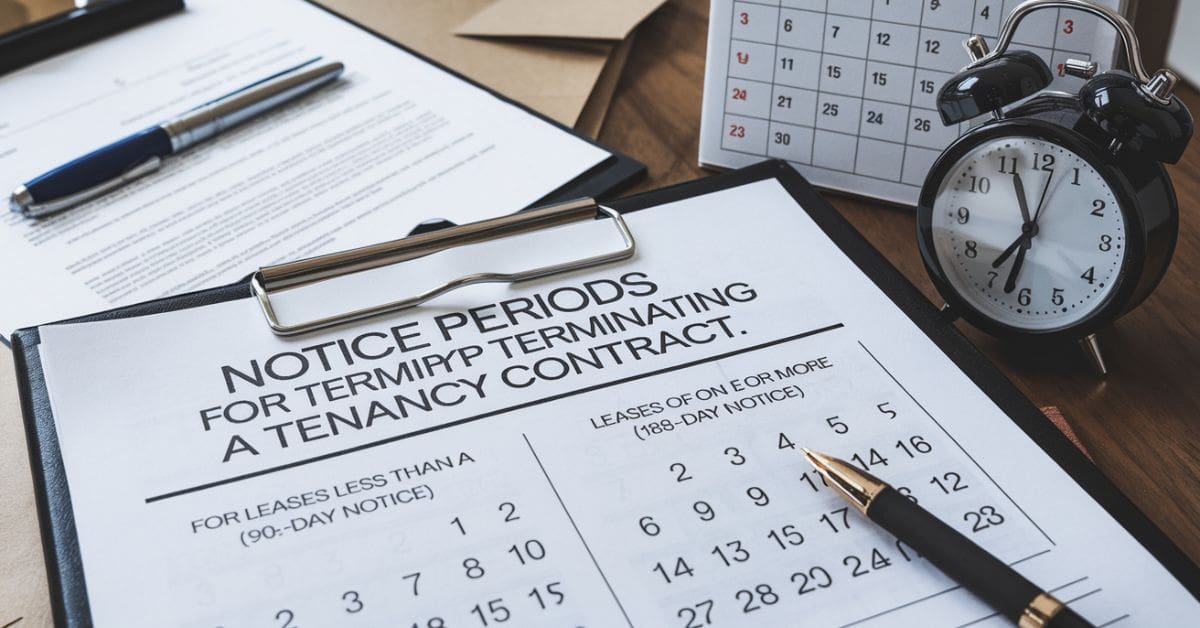Tenancy Contracts In Dubai – Tips And Legal Insights!
When it comes to renting a property, A tenancy contract Dubai is a legal agreement between a landlord and tenant, covering rent, duration, and responsibilities. It must be registered with the Ejari system to be valid. Knowing the rules for rent increases and contract termination helps avoid issues during your tenancy.
Stay tuned with us as we explain everything about tenancy contracts in Dubai We’ll cover important details like registration, renewal, and more to help you understand the process better. Keep reading for useful tips!
What is a Tenancy Contract in Dubai? – Quick & Clear Answer!
As I Mentiond Above, A tenancy contract is a legal agreement between a landlord and a tenant for renting a property in Dubai. It outlines important details like the rent amount, how long the rental lasts, and the responsibilities of both the landlord and tenant.
The rules for renting in Dubai are mainly set by Law No. 26 of 2007, also known as the Dubai Tenancy Law, along with any changes made to it over time. The Real Estate Regulatory Agency (RERA), which is part of the Dubai Land Department (DLD), is responsible for making sure these laws are followed and that rental agreements are fair and clear. Tenancy contracts must follow the rules in Dubai's rental regulations.
Essential Components of a Tenancy Contract:
A standard tenancy contract in Dubai includes the following details:
- Names and contact information of both landlord and tenant
- Property address and description
- Agreed rent amount and payment method
- Duration of the lease
- Security deposit amount
- Responsibilities for maintenance and repairs
How Long Is A Typical Tenancy Contract In Dubai?
A typical tenancy contract in Dubai usually lasts for one year. However, contracts can be negotiated for shorter or longer durations depending on the agreement between the landlord and tenant. After the initial term, the contract can be renewed by mutual consent, often with a notice period required for any changes.
The Importance of the Ejari System – Make Registration Easy!

In Dubai, tenancy contracts must be registered through the Ejari system, which is an online platform regulated by RERA. Ejari means "my rent" in Arabic, and the system ensures that tenancy contracts are legally binding and registered with the government, providing legal protection to both tenants and landlords.
For those looking for tenancy contract Dubai online, the Ejari system allows easy access and management of contracts. It also facilitates downloading a copy of your contract. By using the Ejari portal or the Dubai REST app, tenants and landlords can ensure their agreements are properly registered.
Benefits of Ejari registration include:
- Legal Recognition: Validates the tenancy contract in legal disputes.
- Utility Connections: Facilitates the transfer of utility services like electricity and water.
- Visa and Residency: Required for tenants to sponsor family members or apply for residency visas.
If you need to tenancy contract download, it can be done through the Ejari system after registration, ensuring all processes are official and secure.
Is Ejari Registration Mandatory For Tenancy Contracts?
Yes, Ejari registration is required for all tenancy contracts in Dubai. This means that every rental agreement must be registered with the Ejari system, managed by the government. This makes the contract official and protects both the tenant and the landlord. It also helps with things like getting water and electricity.
Without Ejari, the contract is not legal. If You’re Looking for properties with reliable tenancy contracts? Browse erehomes.ae to find your perfect home
Tenant vs Landlord – Know Your Rights And Obligations in Dubai!
For Tenants:
- Right to a Habitable Property: The property must meet health and safety standards.
- Privacy: Landlords must provide notice before entering the property.
- Maintenance: Tenants are responsible for keeping the property clean and reporting any damages promptly.
- Renewal Rights: Tenants have the right to renew the lease under the same terms unless changes are mutually agreed upon.
For Landlords:
- Timely Payment: Landlords must receive rent on the agreed schedule.
- Property Maintenance: Responsible for major repairs and ensuring the property remains habitable.
- Non-Interference: Must respect the tenant's privacy and not interfere with their peaceful enjoyment of the property.
- Return of Security Deposit: Must refund the security deposit within the stipulated time, minus any justified deductions.
Rent Increases in Dubai – What You Need to Know!
One of the common concerns for tenants in Dubai is rent increases. According to the Dubai Tenancy Law, landlords can increase the rent at the end of the contract term, but only under certain conditions. RERA has set guidelines that determine how much rent can be increased based on the Rent Index, a tool that compares the average rents for similar properties in a given area.
- If the rent is less than 10% below the market rate, landlords may increase the rent by up to 5%.
- If the rent is 11-20% below the market rate, the increase can be up to 10%.
- If the rent is more than 20% below the market rate, the rent increase can be up to 15%.
However, any increase in rent must be communicated to the tenant at least 90 days before the end of the contract.
Can Landlords Increase the Rent During the Tenancy?
Yes, landlords can increase the rent, but only under specific conditions governed by the Dubai Rental Increase Calculator and the Dubai Rental Index. Rent hikes are permissible if the current rent is below the average market rate for similar properties in the area. The increase must align with the guidelines provided by RERA to avoid disputes. Typically, notice of rent increase must be given at least 90 days before the end of the lease term.
What Are the Notice Periods for Terminating a Tenancy Contract?

The notice period for terminating a tenancy contract varies depending on the duration of the lease:
- For leases less than one year: Typically, a notice period of 90 days is required.
- For leases of one year or more: A notice period of 180 days is usually mandated.
Both tenants and landlords must adhere to these notice periods unless otherwise specified in the contract. Failure to provide adequate notice can result in penalties or legal consequences.
How Do I Renew A Tenancy Contract In Dubai?
Renewing a tenancy contract in Dubai is a straightforward process that ensures you can continue living in your rented property without issues. It's important to follow the proper steps to comply with legal requirements. To renew your tenancy contract, follow these steps:
- Discuss Renewal Terms: Communicate with your landlord to agree on the renewal terms, such as rent amount and duration. Rent increases must comply with the RERA rental index.
- Prepare Documents: Ensure you have all necessary documents, including the current tenancy contract, Emirates ID, and passport copies.
- Register Renewal with Ejari: Visit the Ejari system online or through the Dubai REST app to register the renewed contract. This step is mandatory for the contract to remain legally valid.
- Pay Fees: Pay the Ejari renewal fee and any other applicable charges, such as agency fees or deposit adjustments.
- Update Utility Accounts: Provide the updated tenancy contract to DEWA and other utility providers if needed.
Starting the renewal process early is recommended to avoid penalties or any interruptions in your tenancy.
Who Is Responsible for Maintenance and Repairs?
Maintenance responsibilities are generally divided between tenants and landlords:
Landlords: Responsible for major repairs and ensuring the property remains habitable. This includes structural repairs, plumbing, electrical systems, and major appliances.
Tenants: Responsible for routine maintenance, such as keeping the property clean, minor repairs, and promptly reporting any damages or issues to the landlord.
Clear delineation of maintenance duties should be outlined in the tenancy contract to prevent misunderstandings.
Can I Transfer My Tenancy Contract to Another Person?
Yes, tenancy contracts in Dubai can be transferred or assigned to another person, a process known as "contract assignment." However, this requires the landlord's approval. The new tenant must meet the landlord's criteria, and all parties must agree to the transfer. It's essential to formalize the assignment through the Ejari system to ensure legal recognition and avoid any future complications.
Can I Cancel My Tenancy Contract in Dubai?
It is possible to cancel your tenancy contract in Dubai, but the process depends on the terms outlined in your agreement. Most contracts include conditions for cancellation, such as giving a notice period (usually 30 days) or paying a cancellation fee of AED 220.
If you choose to cancel the contract early, you might need to pay the remaining rent for the rest of the lease or face other penalties, depending on the agreement. It's important to carefully review the contract terms before deciding. In case of a dispute, you can seek help from the Rental Disputes Center in Dubai.
Frequently Asked Questions:
1. What is the new rule for tenants in Dubai?
In 2024, new rules for tenants in Dubai require landlords to give a 90-day notice before raising rent. Rent cannot be increased during the first two years of a tenancy agreement. The RERA Rental Index ensures that any rent increases are fair and reasonable.
2. How to fill a tenancy contract in Dubai?
To fill a tenancy contract in Dubai, first gather necessary documents like Emirates IDs and the property title deed. Then, agree on key terms such as rent amount and duration. Finally, register the contract through the Ejari system to make it legally valid.
3. Can the rent be increased during the tenancy period?
Rent can only be increased at the end of the tenancy contract, and it must follow specific guidelines set by RERA. Any increase must not exceed the limits defined by the Rent Index.
4. What should be included in a tenancy contract in Dubai?
A tenancy contract should include the rent amount, payment terms, duration, security deposit, maintenance responsibilities, and any other terms agreed upon by both the landlord and tenant.
5. What happens if the landlord and tenant disagree about the tenancy contract?
If there is a dispute between the landlord and tenant, they can approach the Rental Disputes Center in Dubai, which handles disputes related to tenancy contracts. RERA also provides support for resolving issues.
Conclusion:
A tenancy contract in Dubai is a legally binding agreement between a landlord and tenant. It outlines important terms like rent, duration, and responsibilities. Registering the contract through Ejari is crucial for its legal validity and ensures both parties' rights are protected.
Understanding the rules for rent increases and the procedures for termination is vital for a smooth tenancy experience.


